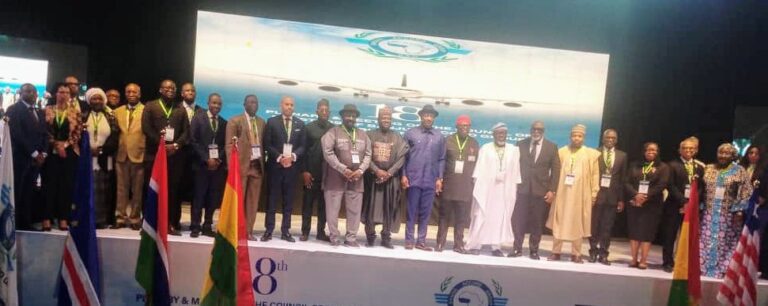Minister of Aviation and Aerospace Development, Festus Keyamo, has called for the urgent implementation of the Single African Air Transport Market (SAATM) to promote regional integration and improve intra-African air connectivity.
Keyamo made the appeal on Monday while delivering the keynote address at the 18th Plenary and Meeting of the Council of Ministers of the Banjul Accord Group (BAG) held in Abuja.
He stressed that enhancing air connectivity within Africa would significantly reduce travel time, lower costs, and improve user satisfaction.
He described improved connectivity as a strategic advantage that strengthens the global competitiveness of cities, states, and regions.
“I want to highlight the urgent need to implement SAATM for the benefit of our sub-region and the entire African continent,” he said.
“SAATM represents a bold and visionary step toward achieving the African Union’s Agenda 2063 and unlocking the immense potential of air connectivity across our continent.”
Despite various declarations and evident political will, Keyamo noted that progress on SAATM had remained slow, with fragmented airspace continuing to hinder regional integration.
He added that full implementation of SAATM would ease the movement of passengers and cargo, reduce transit points, and create more competitive pricing.
He urged member states to move beyond rhetoric and take deliberate, coordinated actions to realise the initiative.
“Our skies must no longer be defined by closed borders, but by open opportunity,” he said, reaffirming Nigeria’s commitment to BAG’s principles.
In his welcome address, Director-General of the Nigeria Civil Aviation Authority (NCAA), Capt. Chris Najomo, said the meeting aimed to enhance collaboration on aviation safety, security, regulatory alignment, and sustainable development in the region.
He expressed Nigeria’s support for the BAG’s objectives and the International Civil Aviation Organisation’s “No Country Left Behind” initiative, which seeks to ensure all states actively participate in global aviation standards.
“Let us keep our eyes on the prize – a safe, secure, and unified aviation sector in West Africa,” Najomo stated.
Also speaking, Director-General of the Banjul Accord Group, Fansu Bojang, noted that the group currently includes seven member states: Cape Verde, The Gambia, Ghana, Guinea, Liberia, Nigeria, and Sierra Leone.
He explained that the group’s mission is to foster safe and efficient civil aviation development within and beyond the member states.
He highlighted the roles of the Banjul Accord Group Aviation Safety Oversight Organisation (BAGASOO), which oversees aviation safety compliance, and the Banjul Accord Group Accident Investigation Agency (BAGAIA), which is responsible for aircraft accident investigations.
(NAN)


